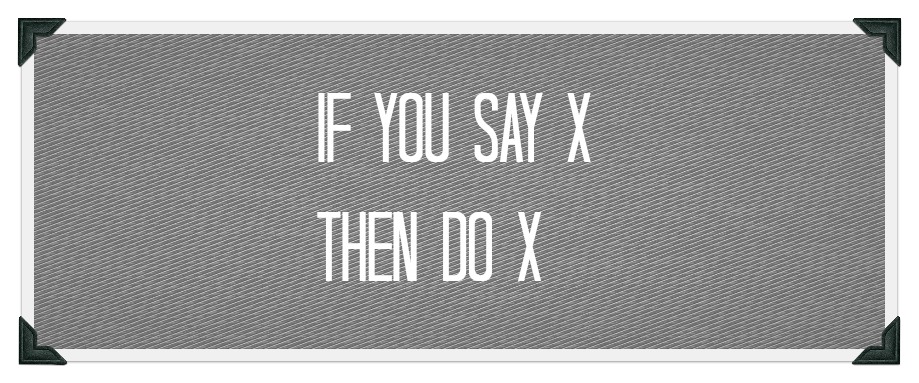Last night I found myself in an intense conversation a networking event held by my friend and colleague, Michael Margolis from Get Storied.
I just met David and we were discussing what the following four organizations all had in common: BP, Goldman Sachs, Toyota, and the Obama Administration.
David and I agreed each had recently lost serious credibility because their actions have not been meeting their words.
- BP—formerly British Petroleum, changed their name to Beyond Petroleum and has benefited enormously from their exaggerated claims as being a green energy company. Now being in the middle of what now may be North America’s worst oil spill, the cat appears to be out of the bag.
- Goldman Sachs—while still not resolved, growing evidence seems to point directly at this “stellar” investment bank has intentionally mislead investors into investments Goldman knew would fail.
- Toyota—their reputation of quality being their top priority has been destroyed by not recalling their malfunctioning cars at ended up killing many drivers around the world.
- Obama Administration— astounding supporters by not keeping several key campaign promises by reinstating subsidies for the nuclear power industry, approving offshore oil drilling on the East Coast and just last week recommending reinstating whale hunting. Whale hunting? Good luck explaining that one!
The challenge for each of these institutions may be far greater that the short-term clean up of their messes. In his book, The Next Sustainability Wave, my friend and colleague Bob Willard claims that “Bad PR lingers like a bad smell”. To back this up
Willard sites a 2003 Burson-Marsteller report that it takes a company on average 3.65 years to recover a blemished reputation.
And in some cases, far longer.
Willard goes on to remind us of Union Carbide’s Bhopal disaster in 1984 that killed an estimated 20,000+ Indians and with an additional 120,000 seriously injured.Twenty years later, in 2004,investors in the now parent company, Dow Chemical, were still voicing concerns from that incident at their annual shareholders meetings.
What can you do to ensure this doesn’t happen to you?
Simple, BE YOUR WORD.
That means, if you say, “X”, then do “X”. It also means if you have not been doing it, then don’t say you have. For with the rapid rise of social media giants like Twitter, Facebook and LinkedIn, your reputation can be tarnished in a heartbeat.
Three reputation-busters to watch for:
- Jumping on Bandwagons: for example, if you are not interested in being ‘green’, nor authentically really care about it, don’t say you are and do care. You cannot fake that one very long before getting busted.
- Audacious Claims: we’ve all seen them, “how to make a million dollars in just six months.” If you’re exaggerating, stop it immediately. At best it is misleading, at worst it’s lying.
- Not Walking the Talk: if you don’t do what you encourage others to do, that is one of the fastest ways to a serious and possibly permanent loss of credibility.
On the flip side of all this, a couple companies doing a pretty good job at being their word are Apple Computers and Seventh Generation. While they both have had their challenges along the way, they really do own up to their words through their actions.
Just know that at the end of the day you will sleep much better knowing your actions are matching your words.
Action Steps for the Week:
This week, review your reputation. Start by taking a look at the features and benefits you claim your customers receive from your product/service.
Are they outdated or outright exaggerated? If so, adjust them and use language that is truthful and powerful.
Next, get authentic third party credible endorsements via testimonials, interviews, reviews, etc.
You can also build case studies of clients you’ve worked with. Explain the “before and after” working with you and the benefits they received along the way.
Lastly, consider using credible sources of statistics and data to back up your claims.
In the end, it will be these sources that will help establish and backup your words and actions.
